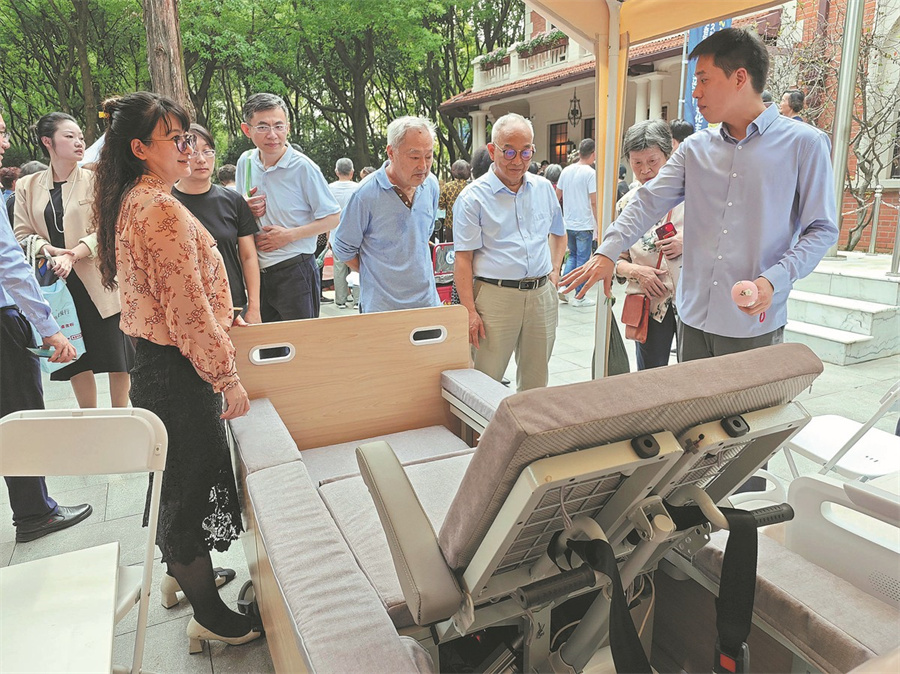
- Home
- Media Center
-
Events
- Wuzhen Summit
- Regional Forums
- Practice Cases of Jointly Building a Community with a Shared Future in Cyberspace
- World Internet Conference Awards for Pioneering Science and Technology
- The Light of Internet Expo
- Straight to Wuzhen Competition
- Global Youth Leadership Program
- WIC Distinguished Contribution Award
- Membership
- Research & Cooperation
- Digital Academy
-
Reports
- Collection of cases on Jointly Building a Community with a Shared Future in Cyberspace
- Collection of Shortlisted Achievements of World Internet Conference Awards for Pioneering Science and Technology
- Reports on Artificial Intelligence
- Reports on Cross—Border E—Commerce
- Reports on Data
- Outcomes of Think Tank Cooperation Program
- Series on Sovereignty in Cyberspace Theory and Practice
- Other Achievements
- About WIC
- 中文 | EN

AI gives golden opportunities to silver-haired seniors

A merchant introduces a smart robotic convertible wheelchair-bed to seniors during a campaign promoting elderly care in Shanghai in October. [Photo provided to China Daily]
China pledged in the 2025 Government Work Report that it will improve the policy mechanisms for the development of elderly care services and industries, foster the growth of industries including embodied AI, and support the extensive application of large-scale AI models.
Chongqing and Shenzhen city governments have launched funding initiatives to advance embodied AI systems, a critical move enabling robots to transition from "digital brains" to physical caregivers and household assistants.
Public data has revealed that a single caregiver is often required to attend to as many as 10 elderly residents in China's nursing homes, indicating a severe shortage of elderly care workers.
Tech giants are racing to fill the gap. In September last year, Tencent's Robotics X Lab unveiled The Five, a human-environment robot designed to advance human-machine collaboration in elderly care scenarios.

The World Internet Conference (WIC) was established as an international organization on July 12, 2022, headquartered in Beijing, China. It was jointly initiated by Global System for Mobile Communication Association (GSMA), National Computer Network Emergency Response Technical Team/Coordination Center of China (CNCERT), China Internet Network Information Center (CNNIC), Alibaba Group, Tencent, and Zhijiang Lab.





